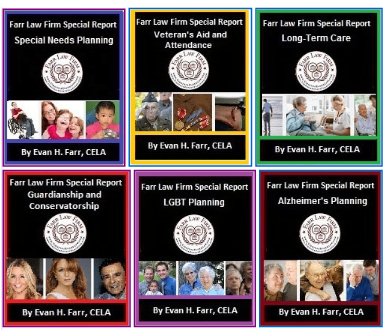Mandating Overtime Pay for In-Home Caregivers
If you cannot view the image below, please read the article on our blog.

Q. My mother-in-law, Stella, lives alone in her home in Florida, and her health has been declining for some time. About a year ago, we hired an in-home caregiver for her who comes 4 hours every day from a local agency. Now her health is deteriorating more rapidly, and we are thinking of hiring a live-in caregiver from the local agency to assist her. When I spoke to the agency about this, the
lady I spoke to said something about live-in caregivers soon needing to be paid overtime. If this is true, I am concerned that it is going to cost us a lot more than we anticipated, and that maybe we should consider other alternatives for Stella, such as assisted living. Do you know if there has been any change to the laws when it comes to caregiver overtime pay and, if so, can you explain? Thanks for your help!
A. Nearly 90% of the nation’s home care aides work for agencies. While industry experts say an overwhelming majority are paid at least the minimum wage, many do not receive time-and-a-half when they work more than 40 hours a week.
For years, labor unions and advocates for low-wage workers have pushed for changes to compensation for these caregivers, including overtime pay. Now, Labor Department officials said such aides will be protected under the Fair Labor Standards Act (FLSA), the nation’s main wage and hour law. How did this happen?
Back in the mid-1970s, the Labor Department created an exemption when it came to overtime for in-home caregivers. Since the early 1990's, however, Democratic administrations have been trying to eliminate the exemption. Last year, the Obama administration argued that much had changed in the industry since the mid-1970s, and now more professional home care is provided by employees of staffing agencies.
With the intent to change the law to reflect the changing times, in 2014, the Obama administration introduced regulations that were intended to remove the exemption in federal minimum wage and overtime laws. The regulations, which were struck down by a lower court last year, were reintroduced recently and, on August 21, 2015, a three-judge appellate panel ruled that the Labor Department has the authority to eliminate the exemption.
This opinion upholding the Home Care Final Rule became effective on October 13, 2015, when the Court of Appeals issued its mandate. The Department will begin enforcement of the Final Rule on November 12, 2015, meaning that very soon all caregiving hours in excess of 40 hours per week must be paid at 1.5 x the basic rate.
How Does This Change Things?
Let's say your mother needs around-the-clock care. Previously, most home health agencies charged a flat fee for live-in care, averaging about $240 per day in Northern Virginia. This type of flat fee billing is based on the theory that a live-in caregiver provides on average about 10 or 11 hours per day of actual care, but is available at all times, even for emergencies that happen during the night when the care recipient is sleeping. However, with the new regulations, a
live-in caregiver can no longer be billed at flat daily rate, but rather must be billed at an hourly rate, and pay 50% more after 40 hours per week.
Does This Mean That a Live-In Caregiver Must be Paid When He or She is Asleep?
According the Dept. of Labor, it depends, because there are many different types of so-called “live-in” care, ranging from caregivers who work a single 24-hour shift per week all the way up to full-time live-in caregivers who live in the employer’s residence 24 hours a day 7 days a week.
Under the new rules, an employee who is required to be at work for less than 24 hours must be paid hourly even though he or she is permitted to sleep or engage in other personal activities when not busy. All the time is counted as work time that must be paid. This can result in a significant extra expense due to having to pay overtime pay for all hours beyond 8 hours a day.
If an employee is required to be on duty for 24 hours or more, then the employer and employee may agree to not count as hours worked a bona fide regularly scheduled sleeping period of not more than eight hours, provided that (1) adequate sleeping facilities are furnished by the employer, and (2) the employee's time spent sleeping is usually uninterrupted. However, caregivers who work 24-hour shifts but are not live-ins must be paid at least minimum wage and overtime for all hours
worked.
Full-time live-in caregivers (i.e., employees who work and sleep on the employer's premises seven days per week and have no home of their own other than the one provided by the employer under the employment agreement) are exempt from the overtime requirements of the FLSA, as are caregivers who reside on the employer's premises for "extended periods of time," meaning employees who work and sleep on the employer's premises for at least five consecutive days or nights each
week.
A live-in caregiver and the employer may make an agreement excluding from hours worked sleep time, meal time, and other periods of freedom from all duties when the worker leaves the premises or stays on the premises for purely personal matters. The live-in caregiver must be paid for all hours worked even if those hours deviate from the agreement.
See http://www.dol.gov/whd/homecare/faq.htm#s1 and http://www.dol.gov/whd/homecare/faq.htm#livein for more details on these new rules.
Given these new requirements, some care recipients may be forced to hire multiple caregivers to avoid paying overtime, resulting in many seniors having less access to the caregiver of their choice due to budgetary concerns.
What Are Other Alternatives?
If the new overtime rules make in-home caregiving too costly, there are other alternatives for your mother, as follows:
- Assisted Living: Assisted living has become an increasingly popular alternative when our aging loved ones need attention and care outside the scope of our capabilities. For those who do not require round-the-clock care, there is a greater degree of autonomy in assisted living than in nursing homes. However, for those relying on Medicaid for long-term care assistance, assisted living is not always an option. Read more about assisted living in this blog post.
- Nursing Home: A nursing home is often the best (and least expensive) place for someone who needs round-the-clock care from skilled nurses and nursing aides. Nursing home staff provides medical care, as well as physical therapy, speech therapy, and occupational therapy. At nursing homes, staff members are encouraged to develop relationships with residents, and make them feel comfortable. Highly rated
nursing homes offer residents a good quality of life, privacy, dignity, autonomy, and food enjoyment.
- Continuing Care Retirement Communities (CCRC), also known as Life Care Communities, offer older adults a spectrum of services and care facilities, typically starting with independent living arrangements, then advancing to assisted living, and then progressing ultimately to nursing home care. In CRCCs, the shelter and services are offered under a contract that lasts for a period of more than one year, usually for life. The fact that CCRCs offer multiple levels of care within
a single community is a very attractive selling point for some seniors, but transitions between the levels of care and other contract provisions, including applying for Medicaid when transitioning to skilled nursing care, have been a major source of tension and lawsuits between residents and providers. Please read our article about CCRCs for more details.
- Shared housing: Aging, single boomers are taking a cue from the hit 80’s sitcom, “Golden Girls” and exploring communal living in retirement. Across the U.S., around 500,000 women aged 50 or older live with a non-romantic housemate, says PBS, and an AARP analysis of U.S. Census Bureau data indicates that there are about 130,000 “group homes” in existence today. Watch a recent PBS Newshour video on shared housing.
What happens when nursing home care is needed? Nursing homes cost $10,000-$12,000 a month in the DC Metro area -- a catastrophic expense for most families. So, it is always prudent to plan ahead in the event that assisted living or nursing home care is needed in the future. Life Care Planning and Medicaid Asset Protection is the process of protecting your assets from having to be spent down in
connection with entry into a nursing home, while also helping ensure that you or your loved ones get the best possible care and maintain the highest possible quality of life, whether at home, in an assisted living facility, or in a nursing home. Call us today to make an appointment for a no-cost consultation:
Fairfax Elder Law: 703-691-1888
Fredericksburg Elder Law: 540-479-1435
Rockville Elder Law: 301-519-8041
DC Elder Law: 202-587-2797
-----
Critter Corner: I Am A Caregiver Whose Friends Are Deserting Me!

Dear Angel,
My mother needs full-time care, so I quit my job and moved in with her. Before doing so, I had a core group of friends that I went to lunch with, to the movies etc. Now, they are not including me anymore. And, it seems they feel uncomfortable coming to mom's house. What do you think I should do?
Thanks!
Missy Mai-Frenz
---
Dear Missy,
While caregiving has many gratifying moments, it's also intense, tiring, and worrisome. The feeling of being on call 24-hours-a-day can take a toll on anyone, and in many instances, long-standing traditions with friends coming for dinner or going out to the movies often go by the wayside.
So, what can you do to keep those friendships that you need more than ever during this time in your life?
• Ask a family member to handle a few of your eldercare duties, so you can plan lunch with friends.
• Make more of an effort to keep up with friends through phone calls or coffee, even if you can't spend a lot of time with them.
• Remain capable of holding a conversation that doesn't include caregiving. To do so, make an effort to follow the news, both national and local, so that you have some subjects that you can discuss other than caregiving and your burnout.
• Try to maintain at least one hobby. For example, if you read books or quilt, continue doing so and discuss it with like-minded friends.
• Make an effort to keep eldercare talk as brief as possible when you are with non-caregivers. Answer polite questions with quick, to-the-point answers, then move to a topic that really interests your friends.
For most of us involved with around-the-clock caregiving, it's not likely that we can keep up a roaring social life. But, for your own wellbeing, you should do at least minimal upkeep on outside friendships. The day will likely come when our caregiving ends, and we will need our friends more than ever at that time. So, take an interest in what your friends are doing, and try to maintain your friendships as best as you can.
Hope this helps!
Purrs and kisses,
Angel
--------
Sign up for our FREE Special Reports and get the answers to your burning questions! Just click on a cover below!

|
| Special Offer |
We’re Giving Away My Best-Selling Books – Click Here to Find out Why and to Get Your Free Copies |
|
|
| |
| Find Us |
|
|
| Upcoming Events |
|
Our upcoming Living Trust Plus Seminar: "How to Protect Your Assets from the Expenses of Probate and Long Term Care" is on November 21, December 12, or January 16 in Fairfax.
----------
|
Article Reprint Authorization
|
We invite you to reprint our articles to bring helpful content to your readers, with the following guidelines:
-The article is to be printed in its entirety;
-Additions, deletions, or changes in the text, title or illustrations may not be made;
-Credit is given to The Law Firm of Evan H. Farr, P.C., as the original source.
Example:
Source: Reprinted from The Law Firm of Evan H. Farr, P.C. Newsletter (www.FarrLawFirm.com).
|
|
Mailing Address
|
Fairfax:
10640 Main Street
Suite 200
Fairfax, VA 22030
703-691-1888
Fredericksburg:
511 Westwood Office Park
Fredericksburg, VA 22401
540-479-1435
Rockville, MD:
1 Research Court
Suite 450
Rockville MD 20850
301-519-8041
Washington, DC:
1425 K Street, NW
Suite 350
Washington, DC 20005
202-587-2797
|
|












